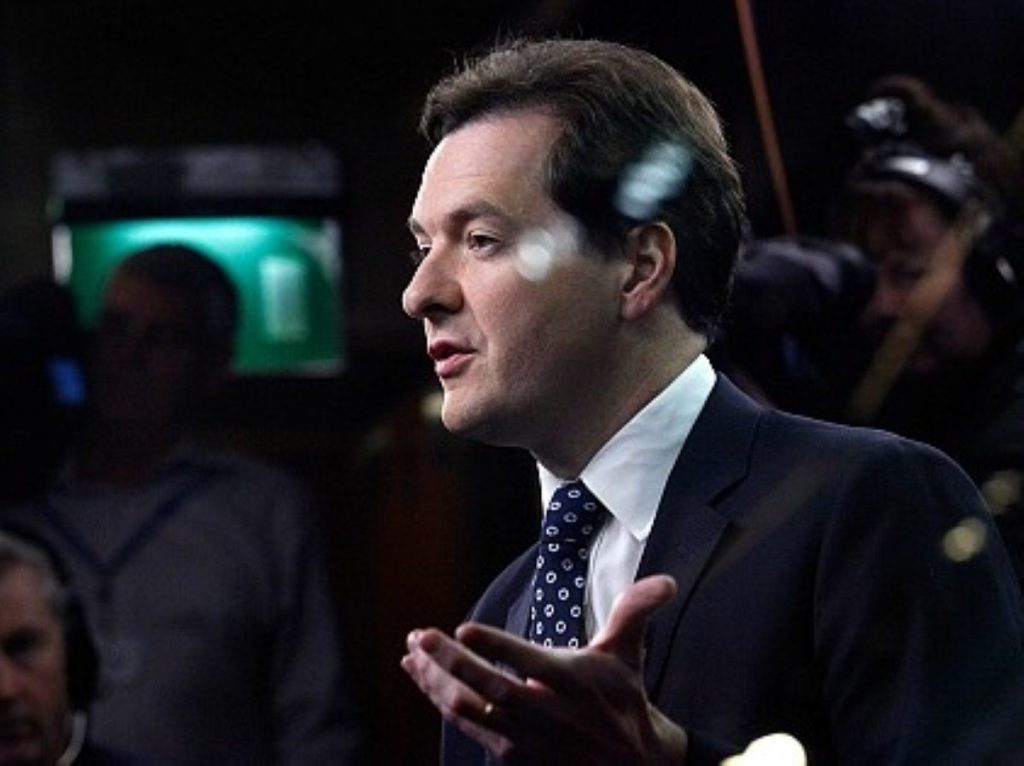Spending review: Aftermath
By Ian Dunt
George Osborne has spent the morning frantically justifying his spending review, as the backlash against the age of austerity starts to build.
Labour, trade unions, religious figures and the Institute of Fiscal Studies all attacked the comprehensive spending review (CSR) this morning, with many analysts branding it an attack on the poor.
“We should look across the Channel to the kind of resistance being mobilised by the French trade unions, which enjoys overwhelming public support,” RMT general secretary Bob Crow said, as thousands of public sector workers gathered in Westminster to protest against the cuts last night.


“We are united in opposition to these cuts and are ready to take co-ordinated action with other unions and community groups to build an opposition to these cuts and overturn them,” said Mark Serwotka, general secretary of the Public and Commercial Services Union (PCS).
There was fierce opposition from the Church of England as well, with Archbishop of York, Dr John Sentamu, saying: “You do not escape an economic downturn by cutting investment and by squashing aspirations.”
The Church of England vs the spending review
Sinn Fein president Gerry Adams launched a blistering boradside against the spending review this morning, telling journalists: “The way to go forward is not through slicing, it’s through stimulating our economy.
“The politics of it all… I thought there was an awful arrogance to a Tory minister dictating how people here shoud live. This is unacceptable.”
Those views were echoed in Scotland and Wales.
“The CSR falls far short of fair treatment as far as Wales is concerned,” said first minister of Wales Carwyn Jones.
The IFS, which threw a spanner in the works of Mr Osborne’s first Budget as chancellor when it judged it to be regressive, said the government would need a Plan B.
Not only could the structural deficit turn out to be larger than the Office of Budget Responsibility (OBR) had estimated, but the deep cuts to public spending would reduce the quantity and quality of services.
“Should this deterioration prove too great for the government’s liking then the chancellor might wish to top up his spending plans,” the thinktank warned.
“A review of these spending plans in two years’ time would be a sensible move.”
‘Little certainty’ to spending review plans
But the Organisation for Economic Cooperation and Development’s secretary-general Angel Gurria praised Mr Osborne, saying the spending review was “tough, necessary and courageous”.
Shadow chancellor Alan Johnson, who also hit the airwaves this morning, told the Today programme: “Many on the benches opposite who were cheering this reduction were doing so because they want to see a smaller state.
“I’m accusing the government of a reckless gamble.”
Johnson opposes spending review ‘slash and burn’
Osborne’s job losses ‘will cost taxpayer £8bn’
But the chancellor hit out at his critics this morning, saying that he was taking a responsible long-term course towards putting Britain back onto financial respectability.
“[The IFS] are saying I might have to go further, at the same time I’ve got the Labour party saying I’ve gone too far and I think being somewhere in the middle is not a bad place to be,” he said.
“All across the piece people are saying I’m going too fast, too slow – I think this is the appropriate pace.”
Mr Osborne insisted that the richest in society would pay their fair share.
“I think if you look at all the measures, you can see that everyone in society has got to make a contribution, but the richest do make the biggest contribution, not just in cash terms but as a proportion of their income,” he said.
Osborne denies spending review gamble
Prime minister David Cameron and deputy prime minister Nick Clegg conducted a joint Q&A session today to address concerns over the plan. They met hostile questions from members of the public in the East Midlands.
Clegg and Cameron face the music
Meanwhile, special interest groups and industrial leaders were assessing what yesterday’s announcement meant to them.
Various charities and lobby groups, especially housing and welfare groups, were furiously briefing journalists about the impact of the reforms.
Banks were finally able to see full details of how the new Treasury levy would operate, after the chancellor said he wanted to extract “the maximum sustainable tax revenue from financial services”.
Fear in the City as bank levy published
Boris Johnson, mayor of London, was proclaiming victory after his public intervention in the spending debate saw him secure funding for Crossrail and the updating of key Tube lines in the capital.
The CSR delivered a five-year plan to eradicate Britain’s deficit. Many government departments would lose around 30% of their funding.
The plan is based on the assumption that the private sector will be able to employ many of the 490,000 people expected to lose their jobs in the public sector as a result of Mr Osborne’s spending cuts.












